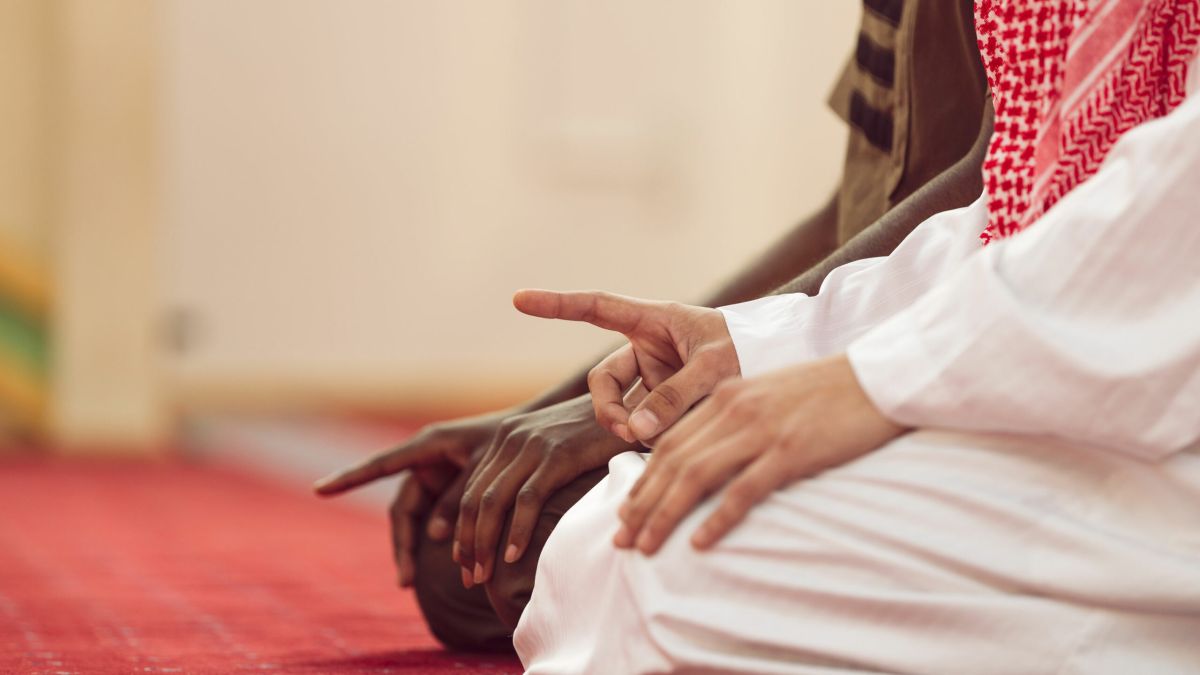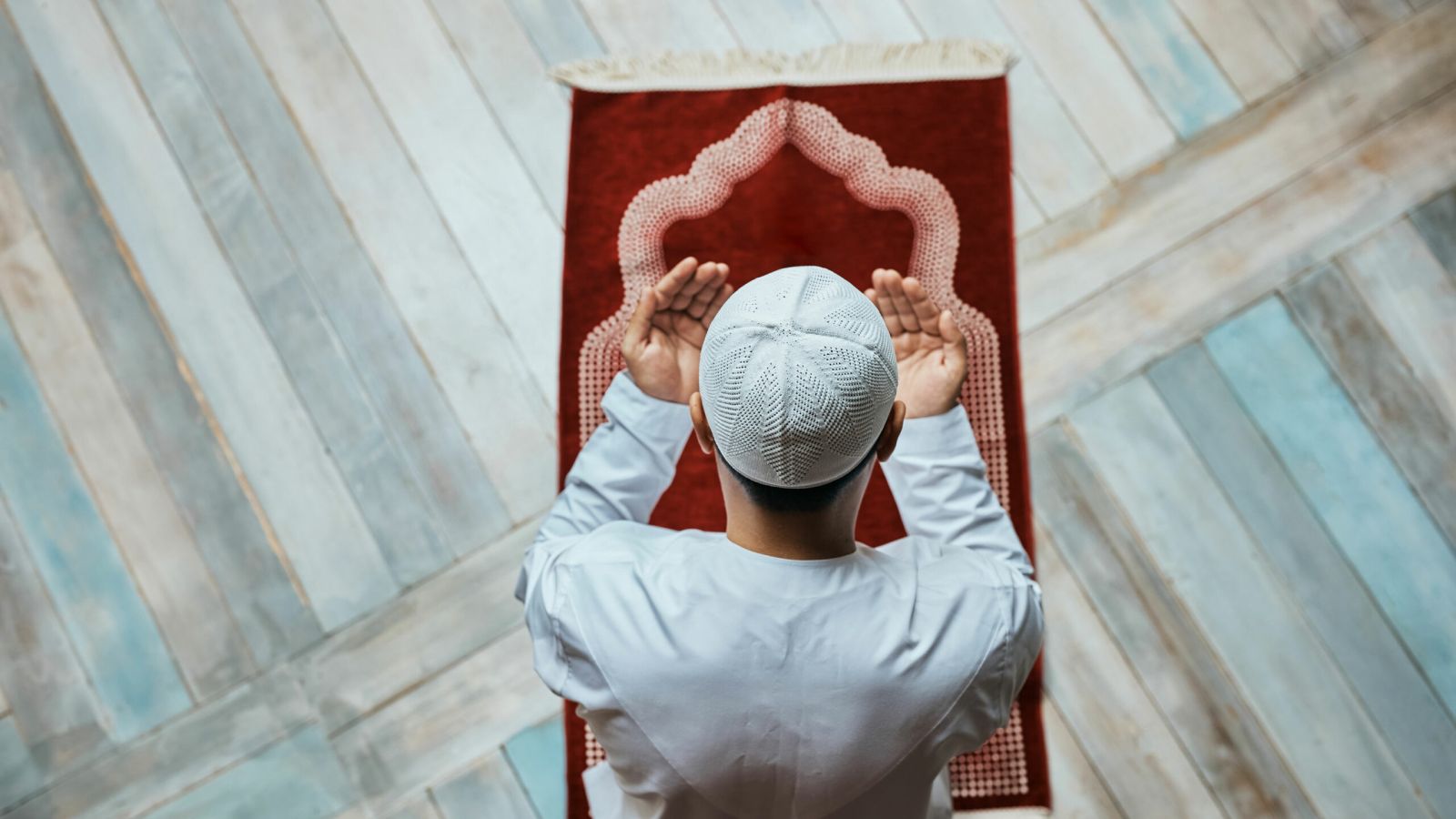The Ruling on Exposed ʿAwrah During Ṣalāh
Imām Muḥammad ibn Ṣāliḥ al-ʿUthaymīn


How Much Exposure of the ʿAwarah Is Objectionable Exposure?
Concerning the person whose ʿawrah1 is uncovered in ṣalāh, whether it be their private parts or any other part of their body which is considered ʿawrah, with respect to them and the exposed portion is extensive enough to be considered objectionable: What is considered objectionable here should be in consideration of the custom of the people. As the poet said: ‘Every rule that is left without clear boundaries by legislation should have its boundaries set based on custom’.
The word ‘extensive’ here should be interpreted according to the particular custom. If the people say: This is a sizable amount of exposure, then it should be considered extensive. If they view another type of exposure as being insignificant, it may be considered unobjectionable and, as such, ineffectual.
Objectionability Varies Pertinent to the Area Exposed
Then, what is objectionable differs also according to the physical place of exposure. For example, if a proportion equal to a dirham of the latter portion of the thigh next to the knee was exposed on one person, while another had exposed their genitalia equal to the same amount, this second exposure would have to be considered extensive while the first is not. Thus, the ruling differs in consideration of the physical part of the body being exposed.
Based on this, there are some people who pray in trousers. When they perform sujūd, the bottom portion of their back becomes exposed, far from their buttocks. If the amount that is exposed is insignificant, like that of the indent lines of a finger, then this is considered ineffectual and small. If, however, the trousers worn are short, to the extent that when he performs sujūd, a sizable proportion of his ʿawrah is exposed [i.e. his backside], this will be considered objectionable.
Intentional Exposure of the ʿAwrah During Ṣalāh
The aforementioned exposure being referred to is that which occurs unintentionally. As for a person who intentionally exposes their ʿawrah while praying, his ṣalāh will be deemed incorrect regardless of whether the amount exposed is insignificant or extensive. As there is a clear difference between the unintended occurrence of exposure and a person actively exposing himself. Considering this, if a person intentionally exposes his ʿawrah in ṣalāh, even if it is a small proportion for a short span of time, his ṣalāh should be deemed incorrect. For example, a person raises his trousers to scratch his thigh—based on the opinion that the thigh is ʿawrah—his ṣalāh is invalid. This is because he intentionally exposed himself.
The Ruling on Unintentional, Significant, Short-Lived Exposure
If a significant portion of a person’s ʿawrah is exposed, but it only lasted for a very short span of time, after which it was covered again: The apparent opinion taken by the composer [Al-Ḥajjawī] is that his ṣalāh should be deemed invalid. However, this is incorrect. Rather, we say: If a sizable proportion is exposed, then he covers it quickly, then his ṣalāh should not be deemed invalid. For example, if a strong wind blows while he is performing rukūʿ causing his clothing to shift, incidentally exposing a part of his ʿawrah, after which he immediately covers himself. The apparent opinion taken by the composer is that the ṣalāh of such a person is invalid. The correct opinion, however, is that this ṣalāh is not invalidated. This is because he covered himself immediately. Furthermore, this type of exposure was unintentional. Allāh—the Most High—said:
فَاتَّقُوا اللَّهَ مَا اسْتَطَعْتُمْ
“So keep your duty to Allāh and fear Him as much as you can.”
(Al-Taghābun, 64:16)
Summarising the Circumstances of Exposure and Their Respective Rulings
To summarise this issue:
- Intentional exposure will result in the complete invalidation of the ṣalāh regardless of whether the amount being exposed is significant or paltry or if the time span of exposure is prolonged or short.
- If exposure is unintentional and only a small proportion is exposed, the ṣalāh will not be invalidated.
- If exposure is unintentional and the amount that is exposed is significant, but it was only exposed for a short period, then the apparent opinion expressed by the composer is that the ṣalāh is invalidated. However, the correct opinion is that the ṣalāh is not invalidated.
- If exposure is unintentional and of a significant proportion for a prolonged period, to where the praying person is only aware of it at the end of his prayer, or after he had performed the taslīm, then this person’s ṣalāh should be deemed invalid. This is due to the combination of significant exposure with a prolonged time period.
Worked Examples of the Third and Fourth Circumstances (Unintentional Exposure Scenarios)
An example of this could be a man who prays in a pair of trousers or an izār (cloth tied around the lower portion of the body). After praying, he discovers a large opening in his clothing directly in front of his genitals. He was completely unaware of it until after he had performed the taslīm to conclude the prayer. We would say: His ṣalāh is invalid and he must repeat it. This is because covering one’s ʿawrah is one of the prerequisites of the ṣalāh. Furthermore, it is most probable that a person in such a situation has behaved carelessly. However, if his clothing was to rip during prayer—which happens frequently especially with regards to tighter clothing—but the praying person was to hold the torn pieces of clothing together immediately, then his ṣalāh may be considered valid. This is because, even if the exposure here was significant, it was covered quickly and occurred unintentionally.
Endnotes:
[1] See The ʿAwrah of Men and Women Inside and Outside of Ṣalāh by Imām Muḥammad ibn Ṣāliḥ al-ʿUthaymīn for an explanation on the technical meaning of ʿawrah.
Source: Al-Sharḥ al-Mumtiʿ 2:170-172
Translated by: Riyāḍ al-Kanadī
Most Popular: Last 30 Days

















